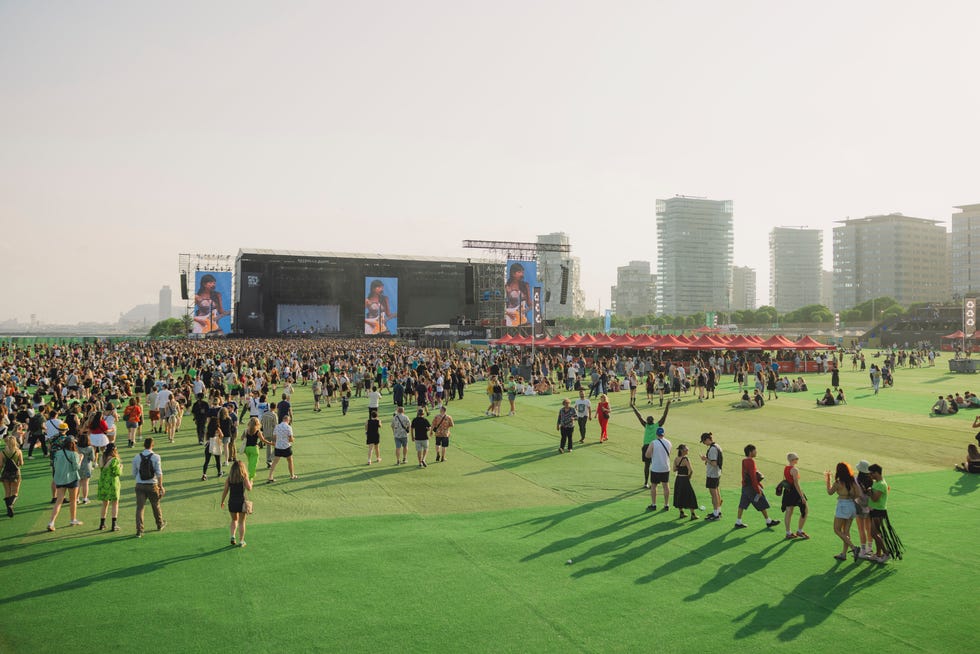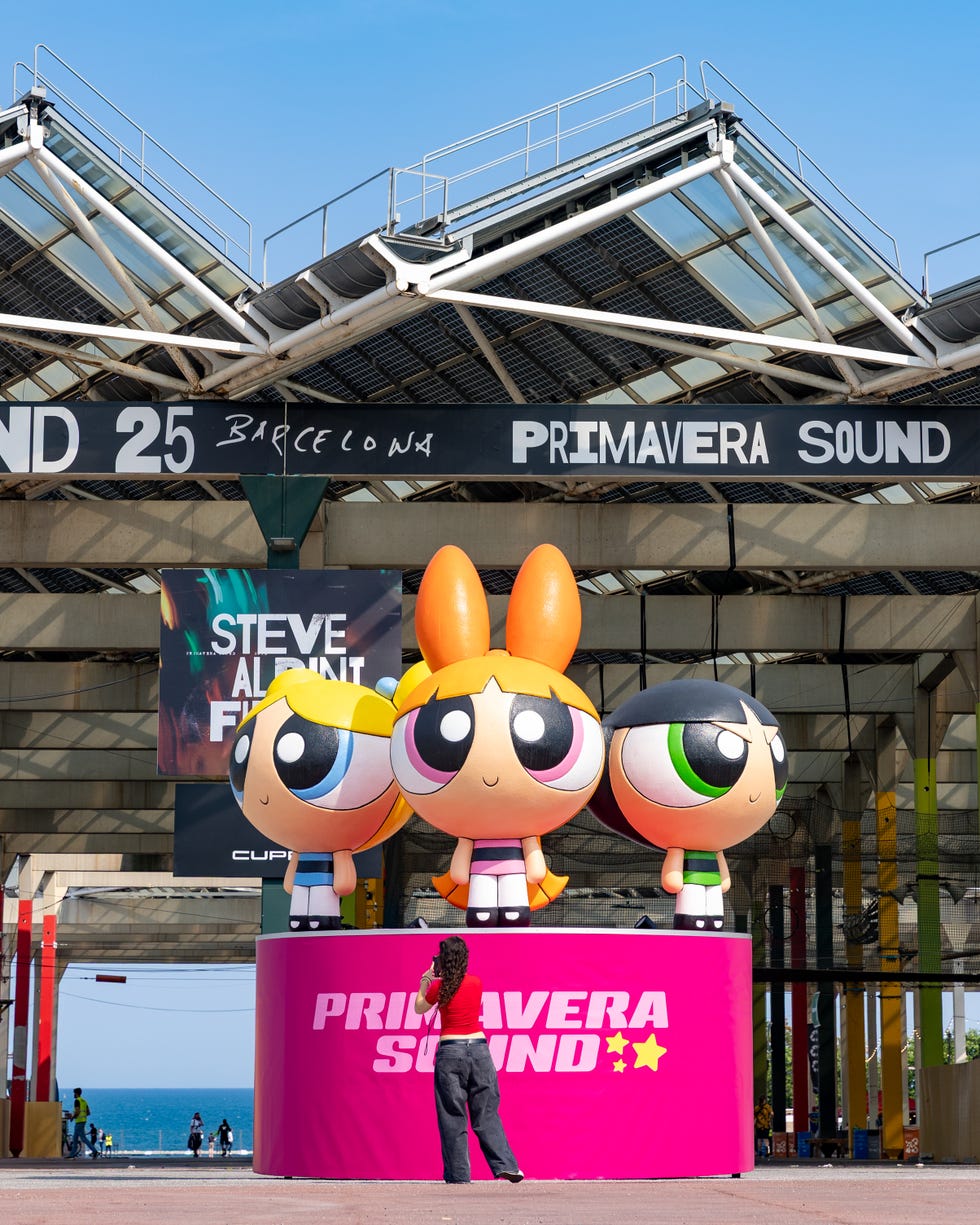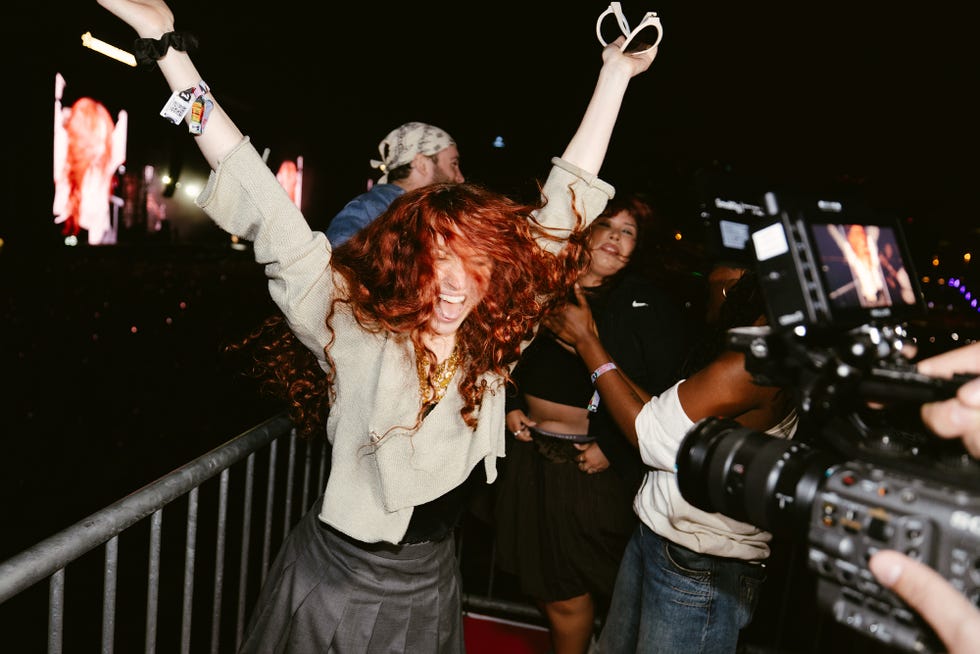With Charli XCX, Sabrina Carpenter, and Chappell Roan headlining an all-female lineup, Primavera Sound 2025 made music history in Barcelona. While the rest of the global festival circuit lags behind in gender equality, Primavera is boldly proving that women aren’t just capable of headlining—they’re redefining what it means to put on a show.
A historic headline moment in Barcelona
This year’s Primavera Sound Festival wasn’t just another stop on the global festival calendar—it was a turning point. For the first time in the event’s 23-year history, all three main stage headliners were women: Charli XCX, Sabrina Carpenter, and Chappell Roan. Dubbed the “Powerpuff Girls” of the pop world by fans online, the trio brought in massive crowds and global viewership via Amazon Music’s livestream, capping off a weekend of unforgettable performances.

Held at the Parc del Fòrum in Barcelona, Primavera Sound 2025 stood in stark contrast to most major music festivals. Where others struggle—or outright fail—to book even one woman in a top billing slot, Primavera leaned all the way in. The festival lineup wasn’t just symbolically inclusive; it was statistically balanced, with 42.36% female artists, 42.36% male artists, and 15.28% mixed-gender acts performing over the course of three days. That alone places it in a league of its own.
“It’s such a privilege to be able to livestream this lineup to a global audience,” said Mish Mayer, Head of Production at Amazon Music, speaking to ELLE UK. “To see all three of these women—who’ve had incredible years—share the same stage across one weekend is so meaningful.”
Meanwhile, the rest of the world is still catching up
While Primavera set a new standard, much of the festival industry remains stuck in a familiar pattern: male-heavy, risk-averse, and frustratingly slow to adapt. In 2023, Sky News reported that only 18% of headline acts at the UK’s biggest festivals were women. Glastonbury’s main Pyramid Stage lineup that year featured zero female headliners. Even in 2024 and 2025, the numbers haven’t significantly improved.
Coachella saw Lady Gaga as its sole female headliner. Reading and Leeds featured Chappell Roan—but only alongside acts like Travis Scott and Bring Me The Horizon. And festivals such as Wireless, Download, and Isle of Wight failed to book any women at all in lead slots. The message? Female artists, no matter how successful, are still treated as the exception.
This, despite the fact that women have been at the forefront of the industry’s biggest cultural moments in recent years—from Beyoncé’s Cowboy Carter Tour and Taylor Swift’s record-shattering Eras Tour, to Doechii’s meteoric rise and Charli XCX’s Brat era domination. Yet recognition hasn’t kept pace with reality. A 2024 report by AKAS (Addy Kassova Audience Strategy) found that only 19% of Grammy-nominated artists between 2017 and 2024 were women.

Even the BRIT Awards have faced scrutiny. In 2023, Charli XCX publicly criticized the lack of women in the Best Artist category, noting that she herself had released a chart-topping, critically acclaimed album that was somehow overlooked. Fast forward to 2025, and she swept the BRITs, winning Artist, Song, and Album of the Year for Brat—an ironic full-circle moment that underscores just how inconsistent the industry’s support can be.
Women sell tickets—and build worlds
One of the most tired excuses used by promoters to justify male-dominated lineups is the notion that female artists don’t sell tickets at the same scale. Primavera Sound 2025 dismantled that myth in real time. Tickets sold out more than five months in advance. Nearly 290,000 attendees from 136 countries descended on Barcelona. Online, the Amazon Music stream racked up impressive viewership numbers. This wasn’t a symbolic victory—it was a financial and cultural one.
But perhaps even more exciting is what the festival revealed about the evolution of the modern female pop artist. According to Amazon Music’s Kirdis Postelle, today’s headliners aren’t just performers—they’re auteurs.
“We’re in Charli’s world, we’re in Sabrina’s world,” said Mayer. “They have so much more ownership now. Whereas before, female pop artists were expected to fit into a world built for them, now they’re building the world themselves—and inviting us in.” Whether it’s Charli’s chaotic Y2K club aesthetic, Sabrina’s glossy revenge-pop confidence, or Chappell’s theatrical, queer-coded fantasy, each artist brings a complete vision to the stage. These aren’t interchangeable stars—they’re distinct creative forces who redefine what headline energy looks like.
Building a sustainable model for inclusivity

Primavera Sound’s gender parity didn’t happen by accident. According to the festival’s Head of Press, Marta Pallarès Olivares, the journey began in 2019, when the festival first made headlines for presenting a gender-balanced lineup. Since then, maintaining and evolving that standard has been a key part of their strategy.
“For us, the challenge is to just continue delivering the best lineups out there,” she told ELLE UK. “Every year we try to do something new.” This year, that “something new” included not just gender parity, but genre and geographic diversity as well—featuring acts like FKA Twigs, CMAT, Wet Leg, Wolf Alice, Haim, and Beabadoobee. With Primavera Sound 2026 already announced for June 4–6 next year, there’s hope that the festival will remain a leader in inclusive programming. The question now is whether other festivals will follow its lead—or continue offering excuses for their exclusionary practices.
Will other festivals finally catch on?
Primavera’s 2025 lineup sent a clear message to the industry: equality doesn’t have to come at the expense of excitement, profit, or artistic quality. In fact, embracing diversity only enhances a festival’s cultural relevance and global appeal.“This show is sold out, we’ve got amazing viewership, and it’s all led by women,” Postelle emphasized. “I think it sends a message to other promoters: women drive this business.”
The proof is on the stage, in the crowd, and online. The only thing missing is action from the rest of the industry. Festivals around the world need to stop treating gender equity as a side quest and start seeing it for what it is: the main event. Until then, Primavera Sound remains the gold standard—showing the world what’s possible when women are given the spotlight they’ve always deserved.



